
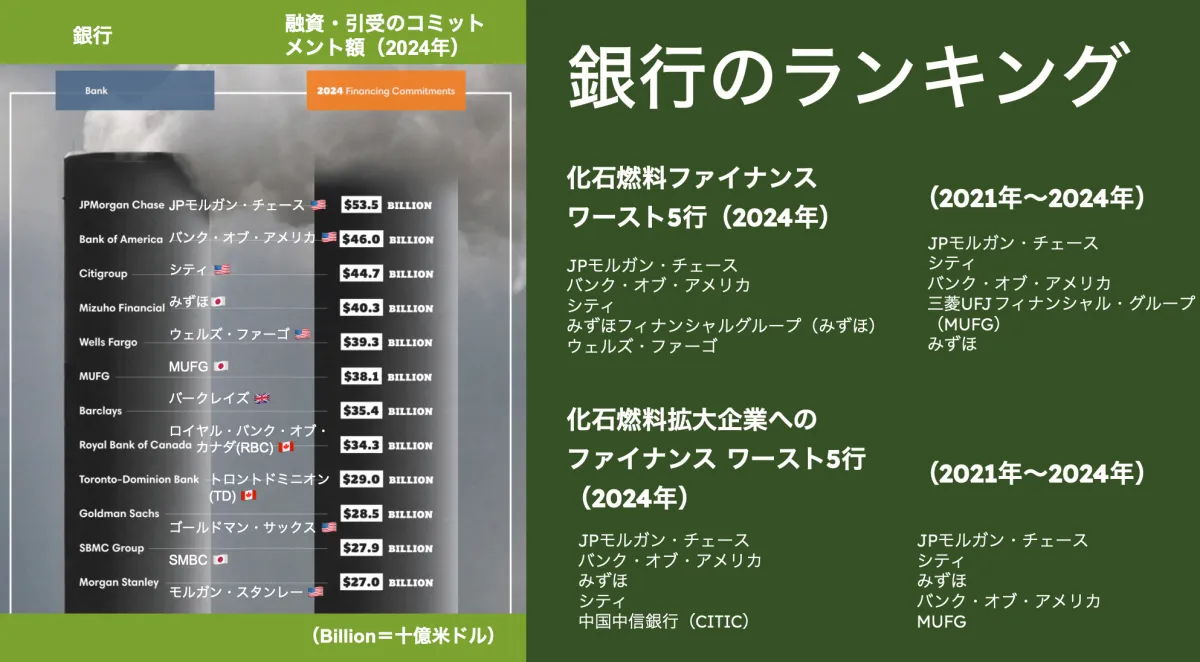
Major Japanese Banks Face Criticism for Increased Fossil Fuel Financing Despite Climate Pledges
Major Japanese Banks Under Fire for Fossil Fuel Financing
A recent press release from the Rainforest Action Network (RAN), a prominent U.S.-based environmental NGO, has unveiled the findings of the “Banking on Climate Chaos 2025” report. The report, published on May 17, 2023, highlights the alarming levels of fossil fuel financing provided by the world’s leading banks, emphasizing how this funding directly opposes commitments made by banks during climate summits like COP26.
In the 2025 edition of the report, RAN reveals that major banks worldwide provided approximately $869.4 billion to fossil fuel companies in 2024, marking a significant increase of $162.5 billion compared to the previous year. Notably, this surge in financing contributes to a total of $1.6 trillion allocated to fossil fuel expansion projects since 2021.
Japanese Megabanks in the Spotlight
Among the worst offenders are Japan’s three megabanks: Mizuho Financial Group, Mitsubishi UFJ Financial Group (MUFG), and Sumitomo Mitsui Financial Group (SMBC). These institutions ranked within the top twelve banks globally for providing significant funds to the fossil fuel sector. Mizuho secured the fourth position, MUFG took sixth, and SMBC came in eleventh. Together, these three banks accounted for approximately 12% of the total fossil fuel financing among the 65 banks analyzed in the report.
The report’s analysis found that a substantial portion of these funds, totaling about $428.6 billion, was earmarked for companies expanding their fossil fuel operations. Alarmingly, from 2021 to 2024, these banks contributed a total of $1.6 trillion to such companies, underscoring a troubling trend.
Context and Background
Despite international calls for urgent action to combat climate change, the report’s findings suggest that banks are increasingly disregarding the risks associated with climate change. The International Energy Agency (IEA) has reiterated that no new fossil fuel expansion is necessary. Banks’ continued funding of fossil fuel projects raises questions about their commitments to climate-related initiatives and the promises made to mitigate climate change.
This trend of increasing financing contradicts earlier pledges made by many banks during the COP26 conference in Glasgow, where they committed to reducing their climate impact. Instead, banks like JP Morgan Chase, which topped the report’s list of offenders with commitments exceeding $53.5 billion for fossil fuel financing in 2024, have backtracked on their commitments. The momentum gained from these climate promises has rapidly diminished, as highlighted by the report.
Trends in Global Fossil Fuel Financing
The report sheds light on the types of financing being provided. As of 2024, loans represented the largest portion of funding, increasing from $422 billion in 2023 to $467 billion. Bond financing saw the most substantial increase, jumping from $284 billion to $401 billion. Notably, acquisitions also rose from $63.7 billion to $82.9 billion over the same period.
In addition to U.S. banks, Japanese institutions have shown significant financing levels, with a total commitment of $106.3 billion for fossil fuels in 2024. This amount represents about 12% of the total fossil fuel financing distributed among the studied banks.
Local and Global Implications
The ramifications of these funding decisions extend beyond just financial figures; they pose serious environmental and social challenges. Activists and citizens are calling for re-evaluating fossil fuel investments, emphasizing that continued funding contradicts global climate agreements such as the Paris Agreement.
Alison Feijans-Turner, RAN’s banking policy leader, articulated the urgency of the situation: “Banks are employing tactics to distract from their responsibility while pouring billions into fossil fuel infrastructure, further endangering our planet.”
The report also highlights a troubling irony as many Japanese banks, despite their substantial fossil fuel investments, claim to uphold sustainable practices. Their shifting commitments raise broader concerns about the credibility of their environmental impact strategies.
Conclusion
The findings of the “Banking on Climate Chaos 2025” report serve as a critical wake-up call. As climate-related disasters intensify, the pressure on banks and financial institutions to transition their investments towards renewable energy sources becomes increasingly apparent. Stakeholders are urged to hold these institutions accountable for their actions, pushing for a financial landscape that prioritizes sustainability and aligns with global climate goals.
As we approach 2024, stakeholders must demand that banks, especially the significant players like Mizuho, MUFG, and SMBC, reassess their funding strategies and contribute to a more sustainable future, ensuring that the fight against climate change is taken seriously and meaningfully addressed.
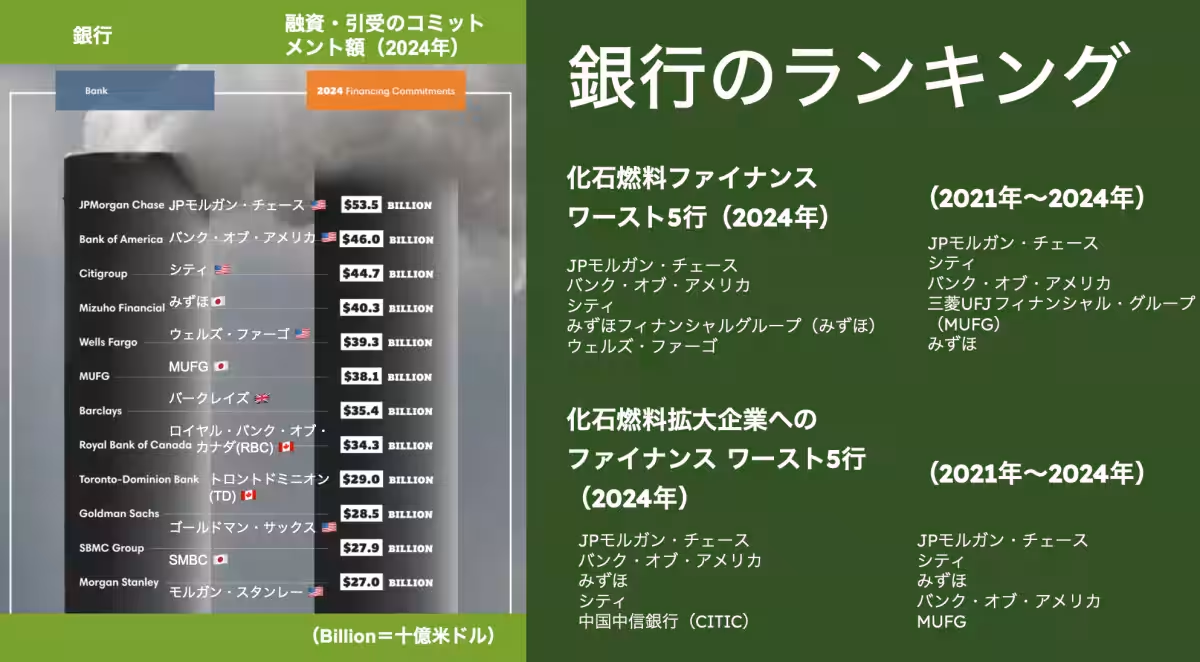
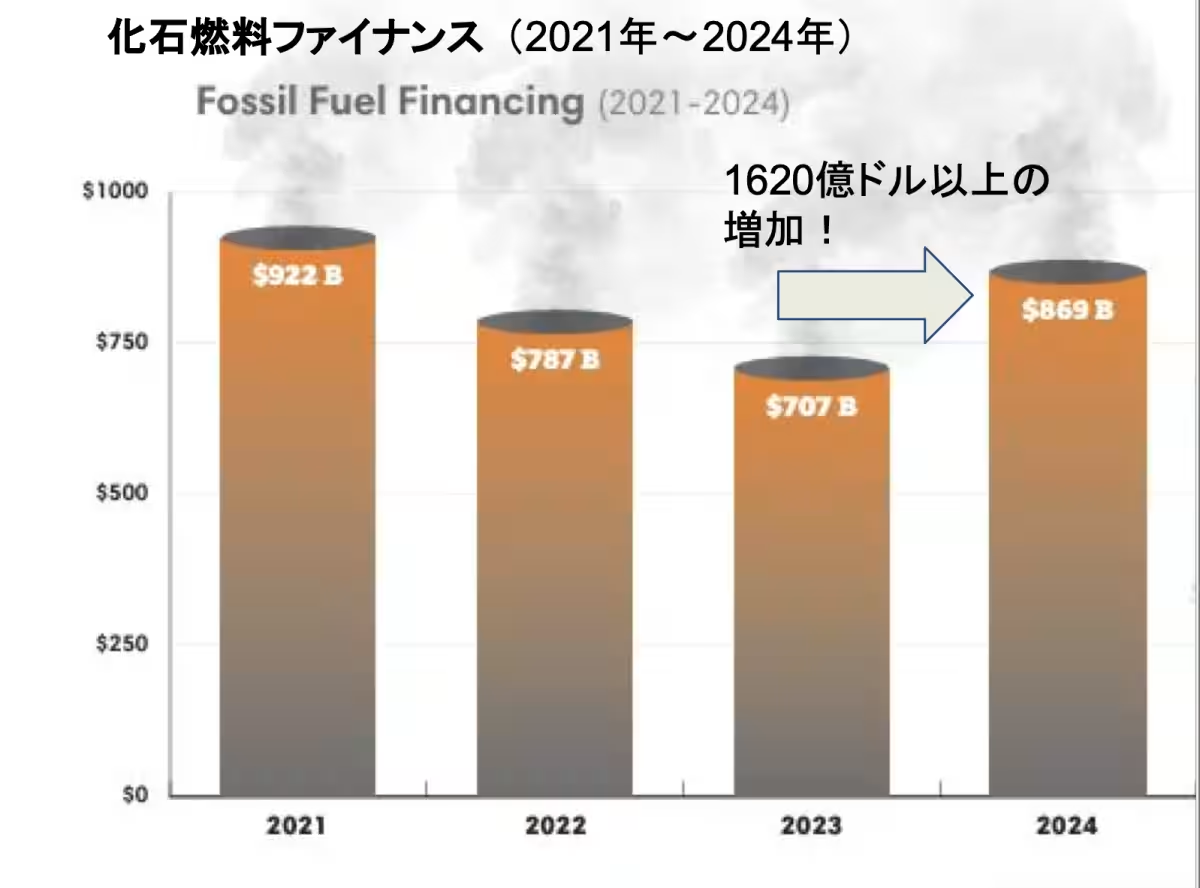
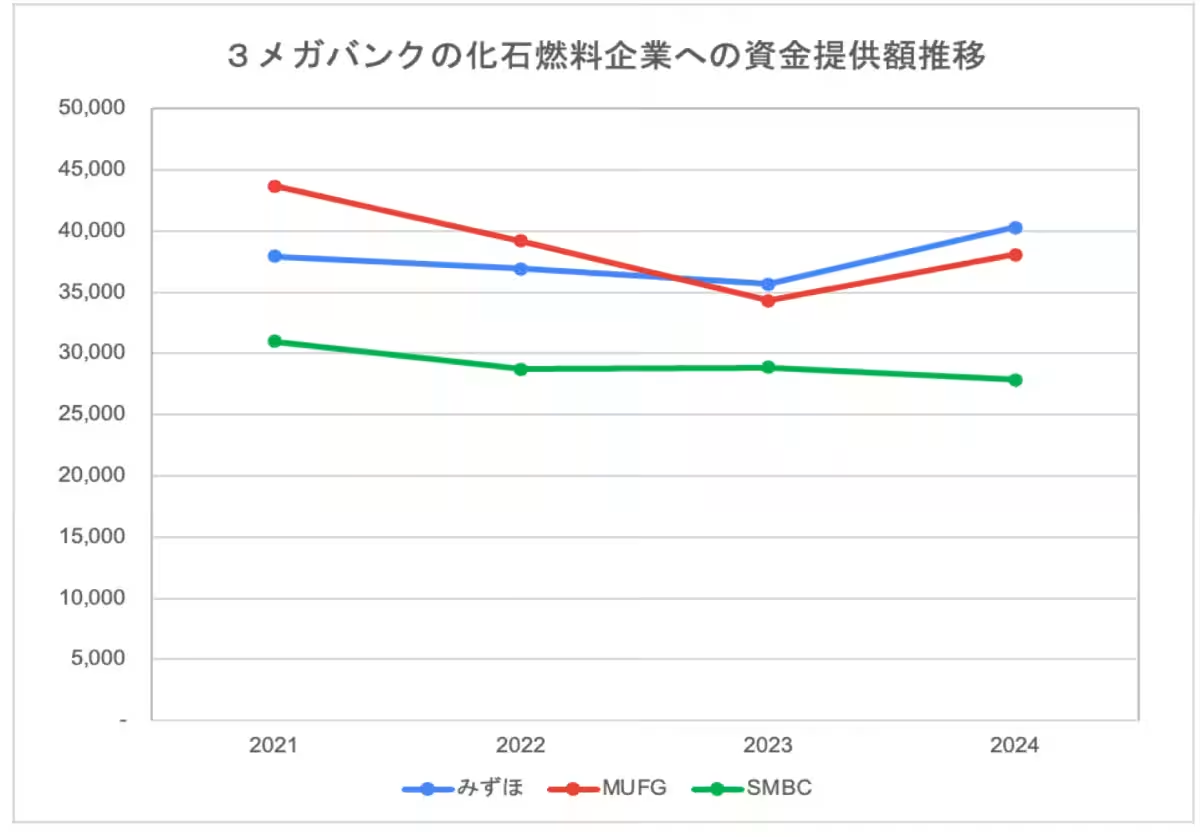
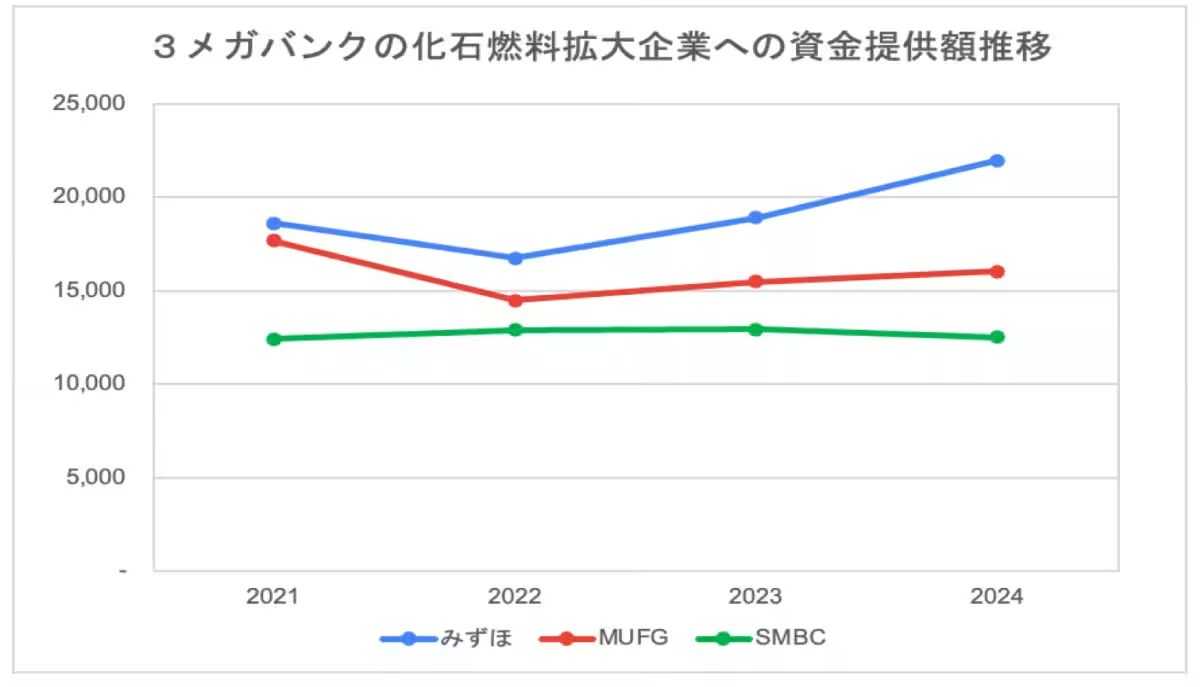
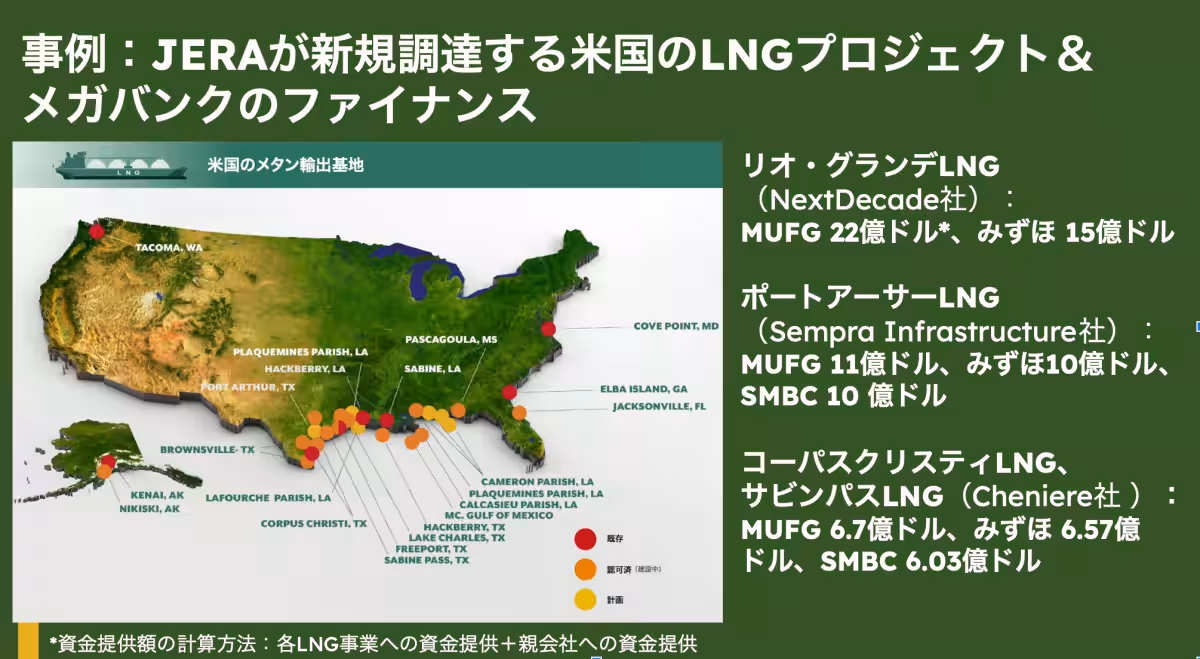
Topics Policy & Public Interest)










【About Using Articles】
You can freely use the title and article content by linking to the page where the article is posted.
※ Images cannot be used.
【About Links】
Links are free to use.